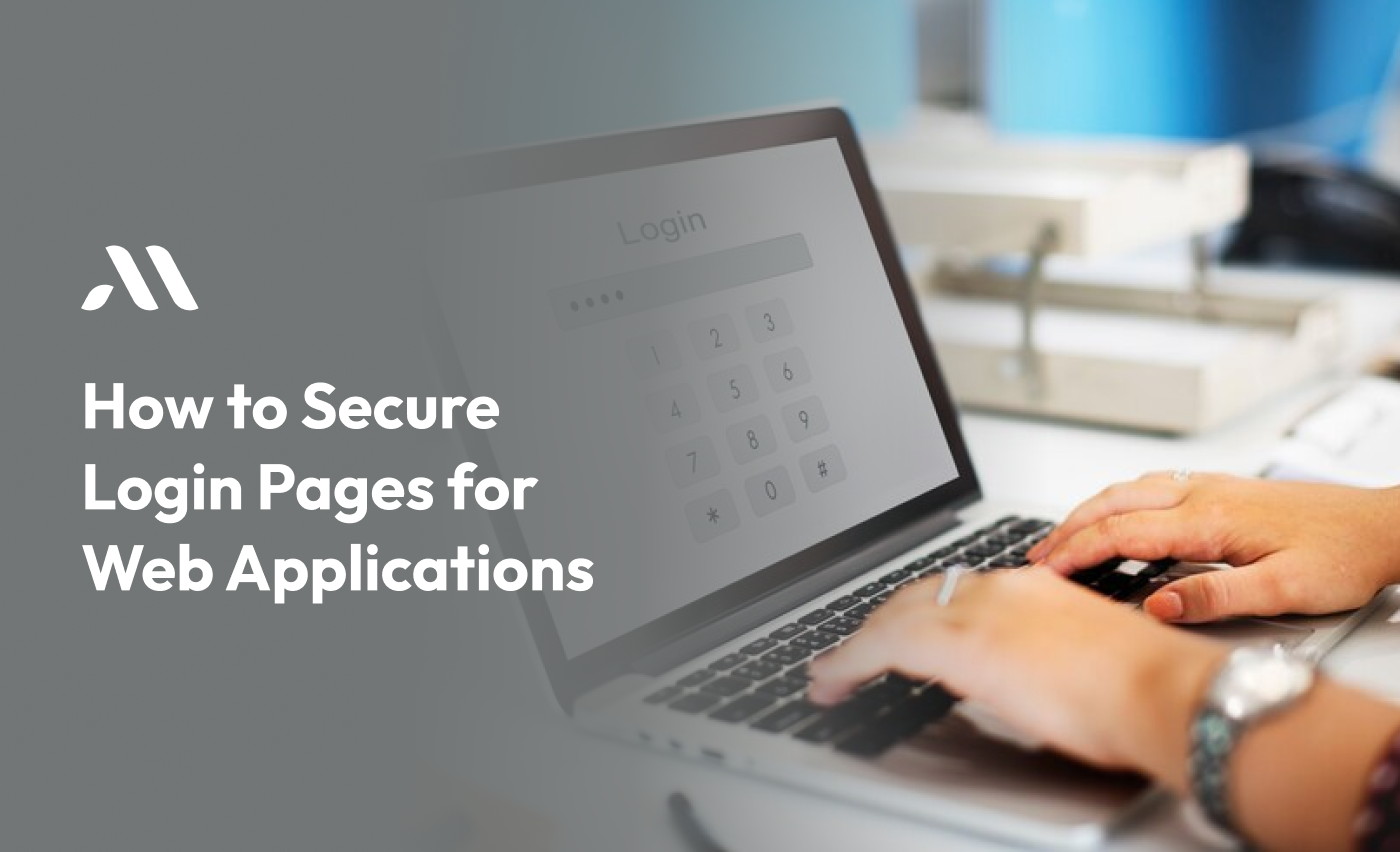In today’s digital world, web applications are an important part of business. Many business owners use web applications to help customers access their services. One of the most critical parts of a web app is the login page. If a login page isn’t secure, it can lead to big problems, like hackers stealing information. That’s why it’s important to focus on creating secure login pages. In this article, we’ll explain how to protect your login pages and keep your business safe.
Why Securing Login Pages Is Important
Imagine your house has a door, but it doesn’t have a lock. Anyone can walk in. That’s what it’s like when your login pages are not secure. Hackers can easily steal passwords, emails, and personal information if you don’t have strong security. For business owners, this can lead to losing customers' trust and damaging your brand.
According to a study, 43% of cyberattacks target small businesses, and weak login security is one of the reasons. A web app development company can help make sure your login pages are secure.
1. Use Strong Password Requirements
One of the best ways to secure a login page is by requiring strong passwords. A weak password like “123456” is easy for hackers to guess.
Tips for Strong Passwords:
- Use at least 8-12 characters
- Include uppercase letters, lowercase letters, numbers, and symbols
- Avoid using common words or personal information like birthdays
- Encourage users to change their passwords every few months
"The stronger the password, the stronger the defense."
2. Enable Two-Factor Authentication (2FA)
Two-factor authentication (2FA) adds an extra layer of security. It means users must provide two pieces of information to log in. This is like having two locks on a door. For example, after entering a password, a user gets a code on their phone, and they must enter that code to access their account.
Did you know that adding 2FA can block 99.9% of automated attacks? It’s one of the most effective ways to protect secure login pages.
3. Use HTTPS Protocol
A secure login page should always use HTTPS. HTTPS encrypts the information sent between the user and the web server. This means that even if someone tries to steal the data, they won’t be able to read it.
Without HTTPS, hackers can easily intercept sensitive information like usernames and passwords. Many web app development companies can set up HTTPS for you to ensure your web application is safe.
4. Implement CAPTCHA
Sometimes, hackers use bots to try thousands of username-password combinations until they find the right one. This is called a “brute force attack.” A CAPTCHA is a simple test (like selecting pictures of traffic lights) that only humans can pass. Adding a CAPTCHA to your login page can stop these bot attacks.
Note: Using CAPTCHA can reduce spam and prevent automated login attempts.
5. Limit Login Attempts
Another way to protect your secure login pages is to limit the number of times a user can try to log in. For example, after 3 failed attempts, you can lock the account for a short time. This helps stop brute force attacks, where hackers keep trying different passwords until they get in.
Tips:
- Lock accounts after 3-5 failed login attempts
- Send an alert to the user’s email when this happens
A web app development company can help you set up this feature on your login pages.
6. Secure Password Storage
Even if your login page is secure, it’s important to keep passwords safe once they’re entered into the system. Passwords should never be stored in plain text. Instead, they should be hashed. Hashing scrambles the password so it’s unreadable, even if someone gains access to the system.
Remember:
- Always hash passwords before storing them
- Use strong hashing algorithms like bcrypt or SHA-256
This practice ensures that even if hackers access your database, they won’t be able to read the passwords.
7. Use Session Timeout
A session timeout means that users will be logged out of their accounts automatically after a period of inactivity. This helps protect accounts in case users forget to log out, especially on public computers. It’s an extra layer of security for your secure login pages.
Tip: Set the session timeout to 15-30 minutes of inactivity
Also Read - Secure Online Payment Gateway Integration - Complete Guide
8. Regular Security Audits
Even with all these security measures, it’s important to regularly check your login pages for vulnerabilities. A security audit can find weaknesses that you may have missed. Many web app development companies offer security audits as part of their services.
More than 70% of businesses that don’t perform regular security checks end up with security breaches at some point.
9. Educate Your Users
No matter how secure your login page is, users need to do their part to stay safe. Teach your users about the importance of creating strong passwords, recognizing phishing scams, and logging out of public devices.
Tips:
- Send out regular email tips on security
- Provide a guide on how to create a strong password
"A well-informed user is the best defense against hackers."
Conclusion: Your Business Deserves Secure Login Pages
Securing your login pages is not just about protecting your customers; it’s about protecting your business. A web app development company can help you implement these security measures and make sure your login pages are as safe as possible.
Secure your app with MicraSol! We specialize in developing web applications with strong, secure login pages that keep your business and customer data safe. Don’t leave your app vulnerable let us help you protect what matters most. Contact MicraSol today for top-notch app security solutions!
Security is not a one-time task. It’s an ongoing process that needs attention. So, whether you're working with a web app development company or handling things in-house, make sure your login pages stay secure.
FAQS
Why is it important to secure login pages?
Securing login pages is like locking the door to your house. It protects your personal information and prevents hackers from breaking into your account. If your login pages aren’t secure, hackers can steal passwords and other sensitive information.
What is a strong password, and why should I use one?
A strong password is a mix of letters (both uppercase and lowercase), numbers, and symbols. It’s important because a strong password makes it harder for hackers to guess. Weak passwords like “123456” are easy to crack and put your account at risk.
What is two-factor authentication (2FA)?
Two-factor authentication adds an extra step to logging in. After entering your password, you’ll need to enter a code sent to your phone. This helps make sure that only you can access your account, even if someone knows your password.
What is HTTPS, and why does it matter for login pages?
HTTPS is a security method that protects the data sent between your browser and the web server. It keeps your information safe by encrypting it. If your login page uses HTTPS, it’s much harder for hackers to steal your login details.
How does CAPTCHA protect my login page?
CAPTCHA is a tool that helps stop bots from trying to guess your password. It asks users to complete simple tasks, like selecting pictures, which only humans can do. This helps prevent automated attacks that try to guess thousands of passwords at once.








